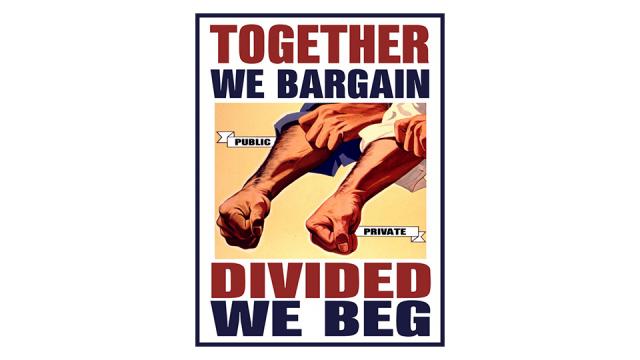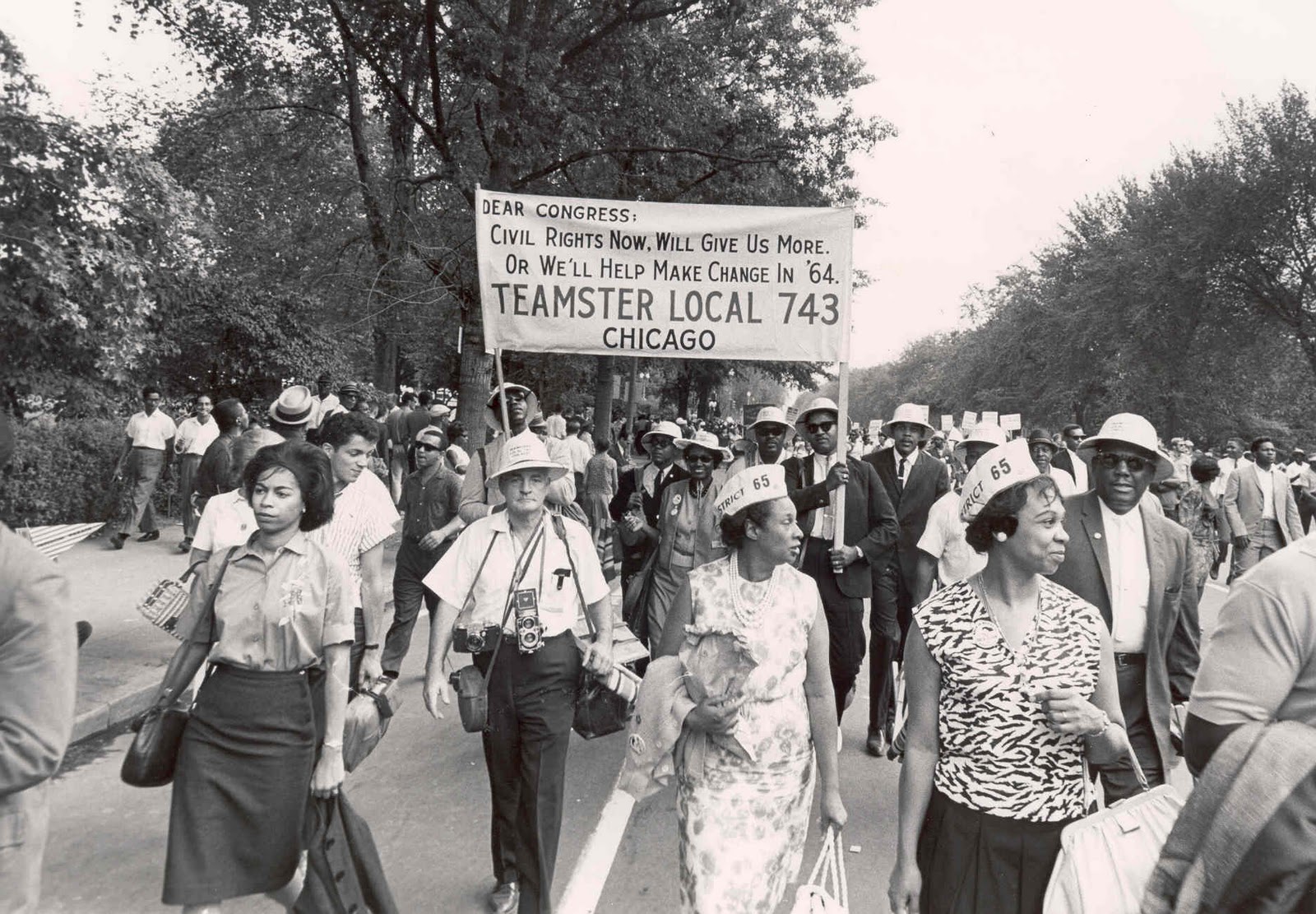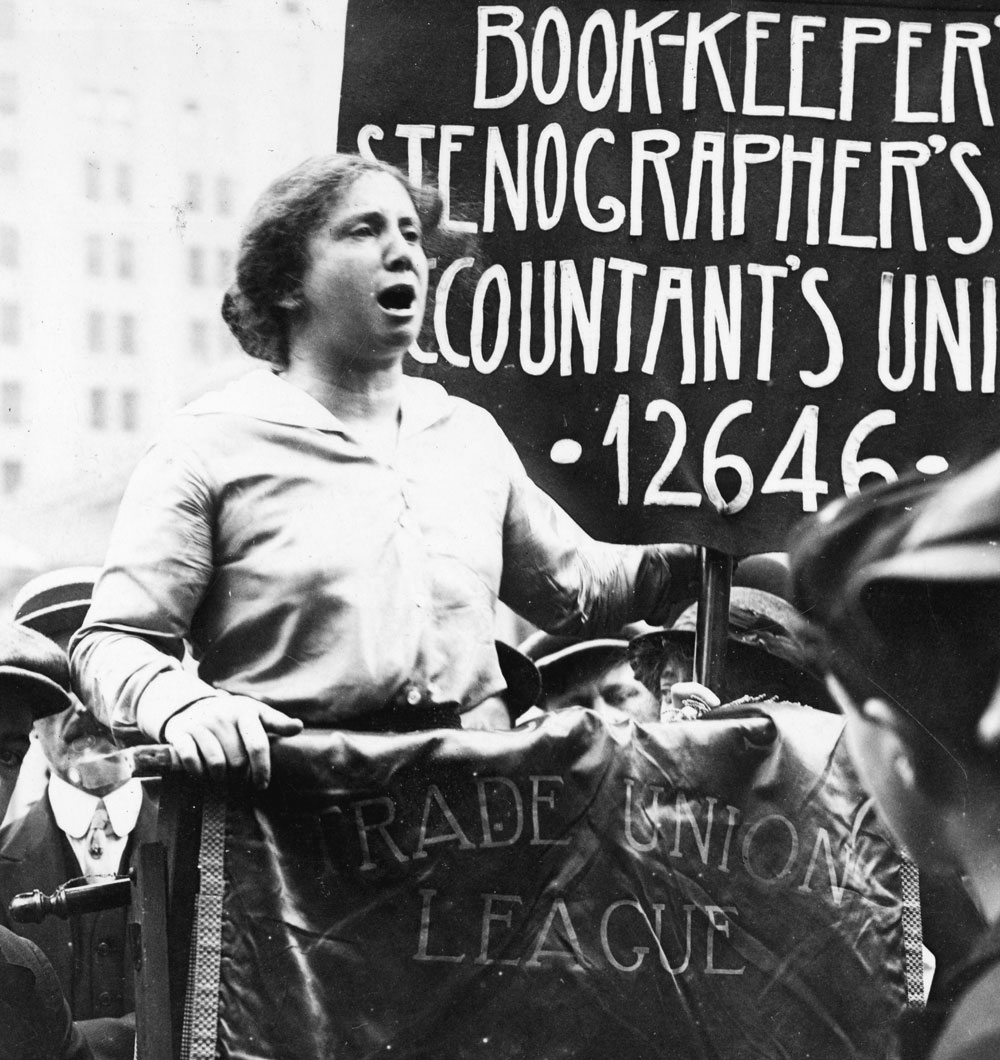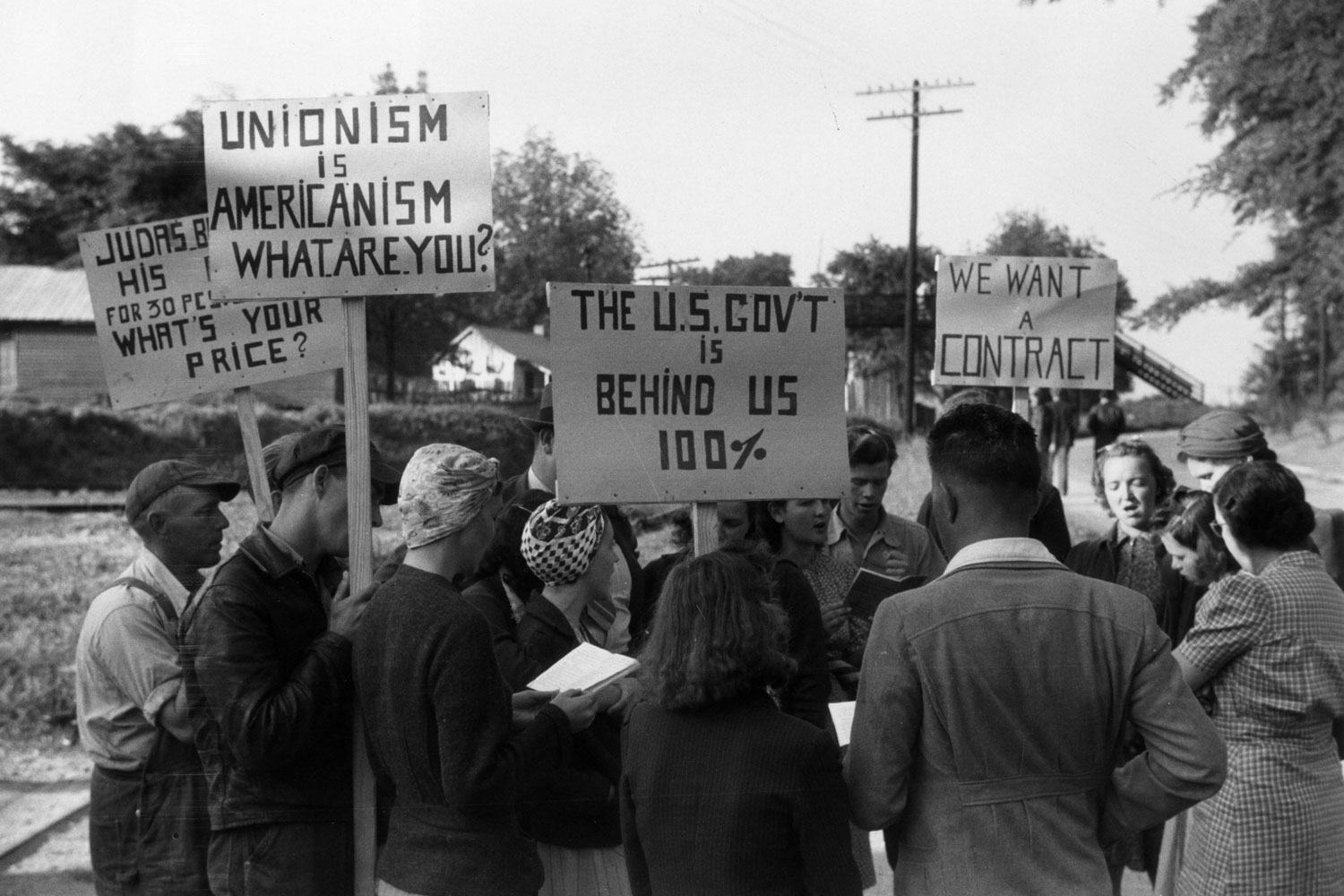
News reports tell us that more than 500 people have now died and more than 2,500 were injured in Savar, Bangladesh, while the toll in West, Texas stands at 15 dead and over 200 injured. Behind these two disasters is a common thread of greed – and a common need for unionized resistance.
“It was like a nuclear bomb went off,” said the mayor as a mushroom cloud soared above his tiny Texas town. The explosion “ripped through three feet of concrete floor slab and then tore apart 10 additional feet of earth,” scattering the wreckage more than 1,000 feet and leaving a blast crater 93 feet wide.
This was the second mushroom cloud to be seen over Texas in recent years. The first was also a workplace explosion, at an oil refinery.
Bystanders weren’t safe in Bangladesh, either. The Savar building collapsed during rush hour, hurling debris through the air while crushing and killing hundreds of the workers inside.
The Whole Story
News reports offer information, but don’t tell the whole story. There’s an underlying theme behind the barrage of words and images from the fertilizer plant explosion and the collapse of a textile factory, and it’s this: When one worker is unsafe anywhere, we’re all unsafe everywhere.
One word that’s conspicuously absent from these news account is “union.” Without it this story of death and disaster will be repeated, again and again and again.
These aren’t just stories about strangers. The Texas plant endangered us all with lax security which failed to safeguard highly explosive materials used by terrorists like Tim McVeigh, and permitted the repeated theft of chemicals used to make methamphetamines.
The Texas plant was surrounded by a school, a retirement home, and private residences. The explosion ripped the roofs from some of those homes and the elementary school, and lawsuits are already being filed by the plant’s newly-homeless neighbors.
And the Savar story is as close to us as the clothes on our backs. The factory manufactured clothing for American distributors that included Benetton, Joe Fresh, The Children’s Place, Primark, Monsoon, and DressBarn.
Godless
The Texas Attorney General’s Office brags about its “Right to Work” laws, which became “Right to Die” laws last week. Union membership in Texas is roughly half the national average, and the national figure has been declining precipitously for far too long.
Trade union activity in Bangladesh was suspended for two years in 2006 when the government declared a “state of emergency,” and its unions are frequently cozy with political parties. They possess neither the strength nor the independence to fight for workplace wages and safety.
The workers in Savar weren’t just endangered. They were underpaid, working 14 or more hours a day and yet still living in deprivation. As “War On Want” documents, 3.5 million garment workers in Bangladesh subsist on poverty wages while laboring in 4,825 factories. More than 85 percent of them are women.
Pope Francis correctly described their condition as “slavery,” adding that their employer’s behavior “goes against God.”
A Pattern of Death
Their deaths weren’t random or unpredictable, no matter what the politicians want you to believe.
Texas Governor Rick Perry denied that lax oversight caused the West explosion, while the Bangladeshi Finance Minister who outraged the world by saying the accident “wasn’t really serious” added that “These are individual cases of … accidents. It happens everywhere.”
That’s a lie. It’s the lie they tell to hide the underlying pattern behind these deaths – a pattern of under-represented workers and unrestrained greed.
And they endanger us all. As the AFL-CIO notes, the West plant hadn’t been inspected by OSHA for twenty-eight years. The plant did not report the fact that it was storing 270 tons of ammonium nitrate to the Department of Homeland Security as required by law, even though that’s more than 200 times the amount Timothy McVeigh used to blow up the Federal building in Oklahoma City. We’re expected to suspend our civil liberties in the name of national security, but businesses aren’t even being asked to follow safety regulations.
And, absurdly, the deficit debate in Washington is still centered around how much to cut from vital regulatory agencies, rather than on how much to should increase to their budgets.
A Story That Changed the World
There was a time when such a tragedy changed the world.
Like that workplace in Savar, the Triangle Shirtwaist Factory primarily employed women. And like their Bangladeshi counterparts, those women worked seven days a week for at least 13 hours each day. In 1911, 146 garment workers burned to death in that factory during a half-hour of horror. Their deaths led to a public outcry, gave new momentum to the union movement, and triggered a wave of new worker safety laws.
Their deaths weren’t unexpected. Union organizers had been fighting for better working conditions at the Triangle Shirtwaist Factory for years. The 1909 Shirtwaist Strike, also called “the Uprising of the Twenty Thousand,” led to marginal improvements in hours and pay. But even after a 1910 factory fire killed 25 people in nearby Hackensack, New Jersey, it took the Triangle tragedy to galvanize a movement.
A documentary called “Heaven Will Protect the Working Girl” tells the story of the 1909 strike. But heaven alone couldn’t protect the working girls at the Triangle factory, any more than it can protect workers in Savar or Texas.
Sometimes heaven needs human help.
People Protect the Working Person
Organizers stepped up their efforts after the 1911 tragedy. Support and membership increased dramatically. With the help of local newspapers, the National Women’s Trade Union League of America sent out questionnaires and documented working conditions in a number of factories. Twenty-five public figures were recruited into a Citizens Committee for Public Safety. They organized “mass meeting at the Metropolitan Opera House, which was attended by thousands of citizens, including a variety of public figures, reformists, clergymen, union people, and politicians.”
They got results. A “Bureau of Fire Prevention” was created and the Municipal Fire Code was amended to prevent future disasters. The state organized a Factory Investigating Commission whose findings led to the passage of thirty-six new labor laws in the following three years. Those laws became a national model.
We saw similar responses as recently as 1968, when a West Virginia mining disaster led to a general coal miners’ strike. That led to the passage of the Federal Coal Mine Safety and Health Act, and shortly afterward to the Occupational Safety and Health Act.
As American as a Union Contract
There was a time when American unionism was considered one of our most valuable exports. It was even used as a Cold War tool, providing other countries with a humane and democratic alternative to totalitarian Soviet-led Communism. Unions were an essential part of the process of democratizing Soviet Europe.
I worked with union organizers on State Department education missions to provide working people with information on union-supported benefits. We spoke to coal miners in the Silesian mountains, dock workers from Gdansk, and factory workers in Hungary and Czechoslovakia.
The President and Secretary of State were Republicans in those days. But they understood that unionism was as American as apple pie, and that a strong global union movement benefits all of us.
One Big Oligarchy
The IWW – the “Wobblies” – used to talk about “One Big Union” for the “workers of the world.” But it’s corporations, not workers, who have globalized in the 21st Century. Multinationals span the globe, bypassing sovereign rights and local economies, collaborating with one another at the expense of consumers and workers everywhere.
They’ve formed “One Big Oligarchy” to control the price of labor and restrict the rights of consumers. We all pay the price – with our wallets, and our lives.
Apple is warned of deadly fire dangers in its China suppliers’ factories, and Steve Jobs does nothing. Government officials are warned of imminent building collapse in Bangladesh, but they protect their cronies as they too decide to do nothing. Company owners in Texas criminally falsify safety records and they, too, do nothing.
In each case, those endangered workers needed independent unions to fight that One Big Oligarchy for their rights – and their lives.
A Disaster Speaks
The politicians came to give their eulogies in West, Texas. But even the President’s moving and eloquent remarks said nothing about ensuring that government will do more to protect the people of that town. Neither the President nor any of the other speakers promised to provide more funding and stronger laws to protect other people from experiencing a tragedy like the one that scarred that little Texas tow
What about us? What should we do?
They’re counting us to become numbed by the sheer numbers of the lost. People were galvanized by the Triangle Shirtwaist tragedy because they saw the humanity in the fallen. The One Big Oligarchy is relying on Stalin’s dictum that “One death is a tragedy, but a million is a statistic.”
To resist them, we must tell of the tragedy. Poet Nicole Cooley quotes the French writer Maurice Blanchot in a moving essay about disasters and poetry. “It is not you who will speak,” said Blanchot. “Let the disaster speak in you.”
The disaster speaks first with the faces of the dead. Then it speaks with the words of loss. Then it speaks with action.
Union Starlight
And action, in this case, means union.
Cooley also quotes from Rebecca Solnit’s powerful book, A Paradise Made in Hell, in which Solnit notes that “the word emergency comes from emerge, to rise out of,” and that “disaster” is derived from “the Latin compound of dis-, or away, without, and astro, star or planet; literally without a star.”
Unions can be one such star. Without them we’ll remain locked in a global race toward the bottom on wages, benefits, and even the sanctity of our own lives. The blight of globalization doesn’t just reveal itself in the loss of American jobs, nor is it best fought with a crude “us against them” mentality.
What’s needed is a recognition that every life is worth fighting for, in every field and factory and mine on the planet. It’s fought with the understanding that better-paid workers buy more goods and raise the global standard of living, no matter where they live.
The stories from Texas and Bangladesh shouldn’t just horrify us. They should galvanize us into action. They aren’t complete until we choose to live them ourselves. As union hero Mary “Mother” Jones once said, “Mourn the dead, but fight like hell for the living.”
Originally published by Campaign for America's Future.
3 WAYS TO SHOW YOUR SUPPORT
- Log in to post comments














